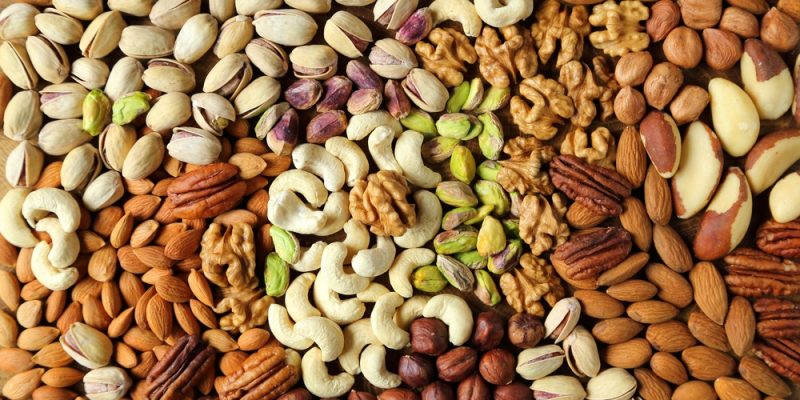The Health Benefits of Nuts
Nuts are one of the healthiest foods you can have. They are full of antioxidants, fibre, protein, vitamins, minerals, and unsaturated fats, they make the perfect snack or addition to sweet and savoury dishes.
What are nuts?
There is still some confusion when it comes to what classifies as a nut. The peanut, although called a ‘nut’, is actually classed as a legume.
And the term ‘nut’ is applied to many seeds that are not botanically nuts. These include brazil nuts, walnuts and pecans.
The botanical definition of a nut is a simple dry fruit with one or two seeds in which the ovary wall becomes very hard (stony or woody) at maturity, and the shell does not open to release the seed.
But for culinary purposes, a lot of these botanical seeds (like brazil nuts and pecans) are classified as nuts.
Health Snapshot
All nuts are different and contain different vitamins and minerals. There is still some debate about which is the ‘healthiest’ nut, but generally the 5 healthiest are macadamias, cashews, brazil nuts, almonds, and walnuts.
- Almonds: One of the healthiest nuts, high in protein, calcium and vitamin E.
- Brazil nuts: Another top nut of health, full of fibre and selenium: just two brazil nuts a day provides 100% RDI for selenium for an adult.
- Cashews: On of the healthiest nuts, very high in iron, zinc, and magnesium.
- Walnuts: Top nut for health. Contains the most antioxidants of any nut, and also contain the most omega-3 fatty acids, which fight inflammation.
- Macadamias: Contain more heart-healthy monounsaturated fat per serving than any other nut. Also high in thiamin and manganese.
- Chestnuts: low GI, fibre and vitamin C (although much vitamin C is lost during cooking).
- Hazelnuts: fibre, potassium, folate, vitamin E.
- Pecans: fibre and antioxidants.
- Pine nuts: vitamin E and the arginine amino acid.
- Pistachios: protein, potassium, plant sterols and the antioxidant resveratrol.
Getting the Most Out of Nuts
Selection – Choose fresh nuts that are hard, smooth skinned, and plump. If they are still in their shell, make sure the shell is hard and without cracks. Don’t choose nuts that are discoloured or black, it means they’re old and have begun to go rancid.
Storing – You can put most nuts in airtight containers in the refrigerator. The refrigeration will prevent the healthy oils and fats from degrading and becoming rancid. Nuts should last 9 to 12 months when stored this way.
Preparing – If the nuts are still in their shell, remove and discard the shell before eating. If you are eating the nuts raw, you generally don’t have to wash them. But if you are cooking or processing nuts, like almonds, it’s a good idea to rinse them first.
Cooking – you can fry, roast, grind, boil, sprinkle, and add nuts to cakes, slices, pies, etc. to your hearts content.
